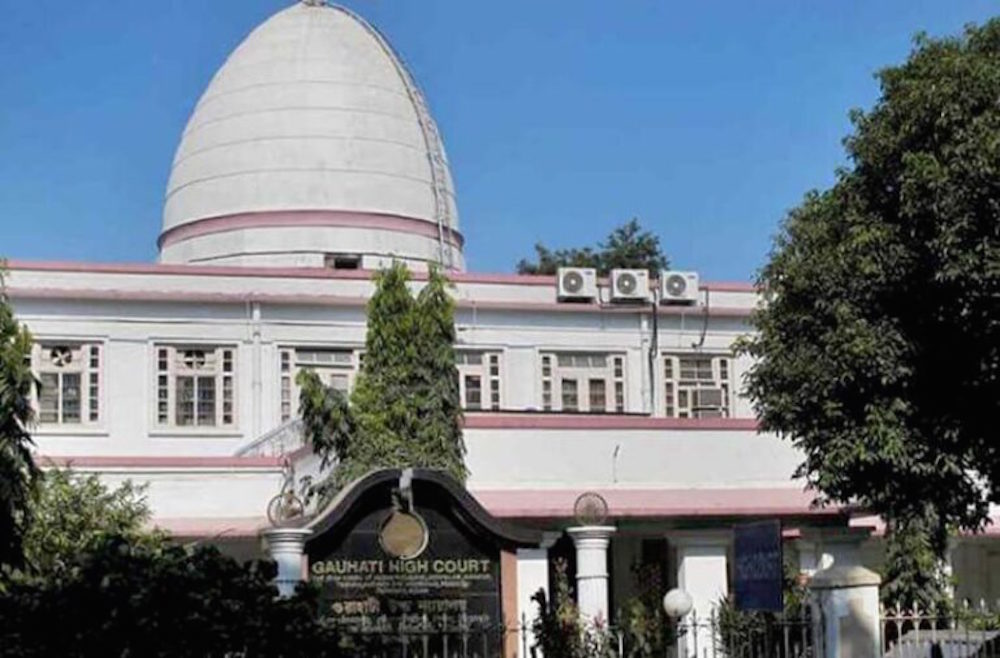

The Gauhati High Court (Aizawl Bench) recently held that belated communication regarding adverse remarks against the ACR of a public servant does not cause any prejudice to the concerned public servant in the matter of promotion.
In Lalthankima v. State of Mizoram & Ors. W.P. (C) No. 104 of 2017; Gawahati High Court- Aizwal Bench, the petitioner has challenged the promotion of respondent to the post of District Transport Officer (DTO) who previously held the post of Motor Vehicle Inspector (MVI). For promotion to the post of DTO, the ACRs (Annual Confidential Reports) of the preceding five years of the candidates are considered to decide on their suitability.
 The petitioner mainly contended that:
The petitioner mainly contended that:
- There was an inordinate delay in communication of his adverse grading. He relied on the decision rendered in State of Haryana v. P.C. Wadhwa, IPS, Inspector General of Police and Ors (1987) 2 SCC 602. wherein it was observed that inordinate delay in communication of adverse remarks makes such remarks lose all importance, and therefore, such remarks should be struck down.
- The petitioner further relied on decisions rendered in Dev Dutt v. Union of India & Ors. and Sukhdev Singh v. Union of India & Ors. where the Supreme Court observed that non-communication of an entry in the ACR of a public servant is violative of Article 14 of the Constitution. The petitioner, therefore, concluded that the non-communicated ACRs should not be considered for promotion purposes.
- Moreover, the petitioner also sought the benefit conferred by Section 20 of the Rights of Persons with Disabilities Act, 2016 on account of suffering disability caused by locomotor cerebral palsy.

The issue framed for consideration was whether the delay in communication to the petitioner of his ACRs was prejudicial to his candidature for promotion to the post of DTO.
 Gradings were communicated and a representation was made: With respect to the plaintiff’s reliance on Sukhdev Singh v. Union of India & Ors.(2013) 9 SCC 566, the Court upheld the same. Further, the Court distinguished the circumstances of the present case with that of Sheo Balak Singh v. Union of India & Ors. in the present case on the following grounds:
Gradings were communicated and a representation was made: With respect to the plaintiff’s reliance on Sukhdev Singh v. Union of India & Ors.(2013) 9 SCC 566, the Court upheld the same. Further, the Court distinguished the circumstances of the present case with that of Sheo Balak Singh v. Union of India & Ors. in the present case on the following grounds:
- i) the gradings in the petitioner’s ACR were communicated to him, and
- ii) the representation made by the petitioner was rejected after due consideration and that too before the commencement of the selection process for promotion to the post of DTO.
On the basis of the aforementioned grounds, the Court rejected the petitioner’s contention that his ACRs from the year 2008-09 to 2011-12 not to be considered. It was also observed that the Court was not in a position to amend the gradings marked by the competent authority.
Effective representation was made: The Court, on account of ‘effective representation’ made by the petitioner against the adverse remarks, concluded that no prejudice has been effected on the candidature of the petitioner for promotion to the post of DTO merely on the ground of belated communication.
The Court also observed that the petitioner cannot claim promotion to the post of DTO merely on the pretext of Section 20 of the Rights of Persons with Disabilities Act, 2016 when the post itself is not reserved for persons with disabilities. Neither the petitioner was able to prove that he has faced discrimination on the ground of his disability.
Other concerns: The petitioner’s contention that he has not signed his ACRs for the year 2008-09 to 2010-11 was also rejected on the ground that the petitioner did not raise the contention earlier in the letters he addressed to the defendants and made no remark with respect to the same during the representations.
Lastly, the Court also took note of the fact that the petitioner did not apply for leave even after not attending office for almost 3 years and still took full pay during that period.
 The above being said, the Apex Court in the case of Sukhdev Singh -Vs- Union of India & Ors (Supra) and Dev Dutt (Supra) have held that every entry in the ACR of a public servant must be communicated to him within a reasonable period, whether it is a poor, fair, average, good or very good entry. This is because non-communication of such an entry may adversely affect the employee in two ways:
The above being said, the Apex Court in the case of Sukhdev Singh -Vs- Union of India & Ors (Supra) and Dev Dutt (Supra) have held that every entry in the ACR of a public servant must be communicated to him within a reasonable period, whether it is a poor, fair, average, good or very good entry. This is because non-communication of such an entry may adversely affect the employee in two ways:
(1) had the entry been communicated to him he would know about the assessment of his work and conduct by his superiors, which would enable him to improve his work in future;
(2) he would have an opportunity of making a representation against the entry if he feels it is unjustified, and pray for its upgradation.
Hence, non-communication of an entry is arbitrary, and it has been held by the Constitution Bench decision of this court in Maneka Gandhi v. Union of India that arbitrariness violates Article 14 of the Constitution.
In the case of Sheo Balak Singh -Vs- Union of India (Supra), this Court had held that un-communicated adverse entries in the ACR cannot be considered for promotion of an officer as it was in violation of the principles of natural justice. However, in the present case, the petitioner was informed about the gradings in his ACR which was below the Bench- Mark and the petitioner also made a representation against the same, which was considered and rejected by the respondents, prior to the selection process conducted by the respondent no.6 for promotion to the post of DTO.
The Gauhati High Court held that delay in communication of adverse remarks against the ACR of a public servant is not prejudicial to his candidature for promotion to the post of DTO. That such delay is arbitrary and violative of Article 14 of the Constitution but the argument is not good enough to promote such public servant. Moreover, the benefit conferred by section 20 of the Rights of Persons with Disabilities Act, 2016 cannot be claimed where the post is not reserved for persons with disabilities or where there is no discrimination on the ground of such disability.






